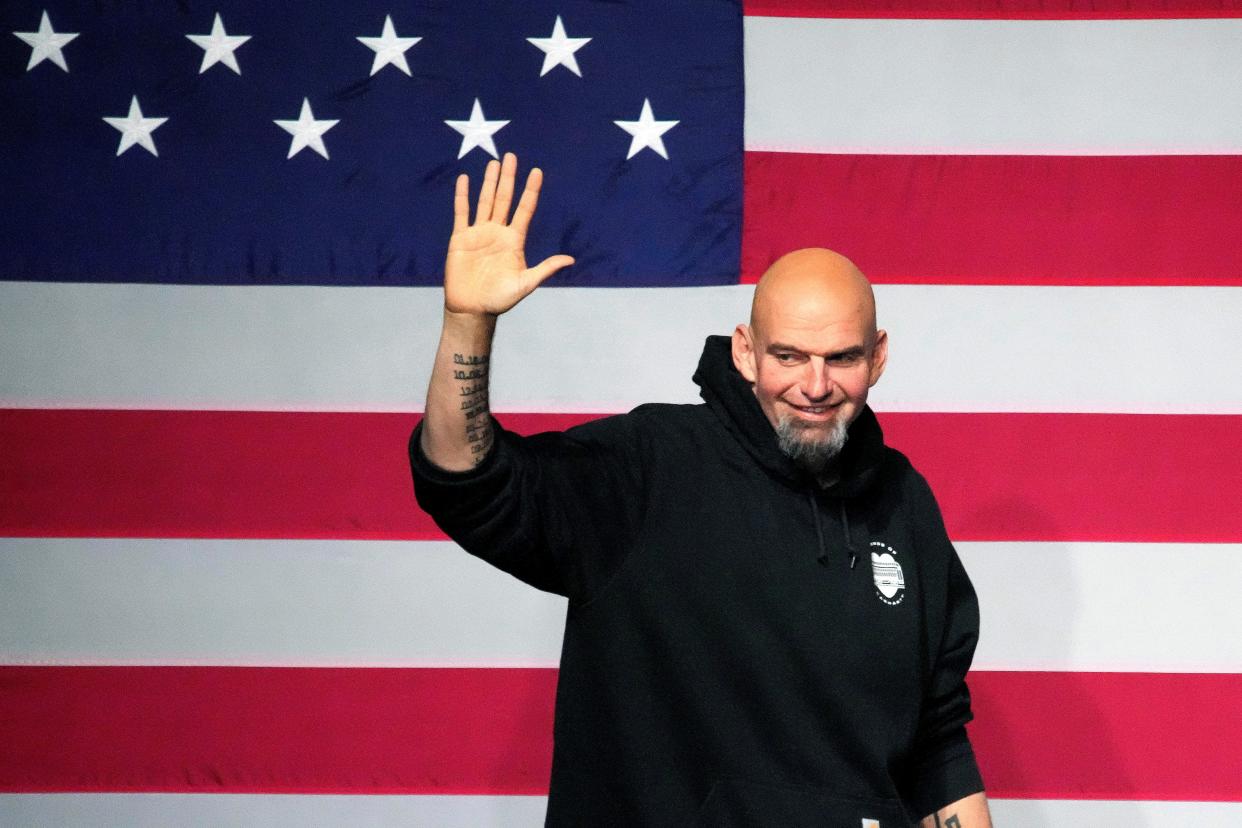Fetterman’s disclosure of depression helping chip away at stigma of mental health

Despite the fact that Johns Hopkins Medicine claims that one in four Americans have suffered from some form of mental illness, there is still a large stigma around mental health, especially for men.
The recent disclosure from Pennsylvania Senator John Fetterman that he has entered a hospital to be treated for clinical depression has been received with support from those on both sides of the aisle, a sign that some of the stigma around mental health is starting to be chipped away.
This is a good thing, especially considering that in 1972, Thomas Eagleton was forced to withdraw as presidential candidate George McGovern’s running mate after his issues with mental treatment became publicized. Society has come a long way in 50 years, but it’s important to realize that there is still a long way to go.
More:'Stigma is not yet broken.' Lawmakers share stories on mental health with Fetterman hospitalized
More than half of the people with mental illness do not receive any help for their disorders, according to The American Psychiatric Association. The reasons for this is largely because of the stigma, prejudice and discrimination people with mental illness face. For men, the stigma is especially present because of the stereotype of the strong man or fatherly figure which is one who has all the answers and never needs help from anyone else. To admit to needing help, let alone admit to having a mental health issue, often results in being deemed as weak and less manly.
We’ve often seen the results of these types of stigmas with police departments, military veterans and other high- stress, male-dominated professions. Instead of seeking help for a mental issue, many of these officers and veterans avoid seeking professional help and instead turn to drugs or alcohol, often becoming dangerous to both themselves, their families and others and in too many cases, become suicidal.
In Chicago, seven police officers reportedly died by suicide in 2022, including three in one week in December. Since 2018, more than a dozen Chicago police officers have died by suicide, according to news reports. Across the nation, suicide remains a problem for many police departments as does the continued existence of the stigma that goes along with mental health.
A 2018 survey by the Fraternal Order of Police asked nearly 8,000 officers from around the country and found the stigma over mental health was a significant barrier to seeking treatment, with 90% of the respondents saying they believe there is a stigma in law enforcement that creates a barrier to seeking help for emotional or behavioral health issues.
Additionally, nearly 17% of the officers who took the FOP survey reported they had thoughts of suicide.
The survey said that the “perceived sources of this stigma are varied, but include concerns about putting employment at risk, concerns that the officer will be seen as weak or unfit for duty, and concerns that service providers won!t understand the nature of the job.”
For veterans, the stigma around mental health also still exists and the reasons for it are similar. Mental health stigma in the military is strongly grounded in military culture and is linked to a desire to handle problems on one's own, according to a 2019 article in Military Health System by clinical neuropsychologist Dorothy Kaplan.
Interestingly, service members who report psychological health concerns are most likely to perceive stigma and anticipate negative outcomes for seeking care, including career harm, Kaplan wrote.
There was once a time when those who suffered from alcoholism were viewed as having a moral failing and as people with no self control. It took education and brave people openly admitting to having that disease to pave the way for others to seek help instead of keeping it to themselves, only to get worse.
Over the last few years, more and more celebrities and well known people are reported to have disclosed mental health issues that they have battled, including former NFL quarterback Steve Young and rock music icon Bruce Springsteen, both members of professions that are held up as supremely masculine. Most recently, it was Sen. Fetterman.
These revelations are positive steps in breaking down the stigma and will hopefully lead others who do not have the same fame or fortune as a Bruce Springsteen or John Fetterman — but may have even more of an influence on others they know — like a police sergeant or military commander, to not hesitate about seeking help and in turn, showing others that seeking help is a sign of strength, rather than a weakness.
Jeffery M. Leving is founder and president of the Law Offices of Jeffery M. Leving Ltd., and is an advocate for the rights of fathers. He can be found on Twitter and Instagram @Dadsrights
This article originally appeared on Milwaukee Journal Sentinel: Sen. John Fetterman's depression treatment helps break down barriers.

